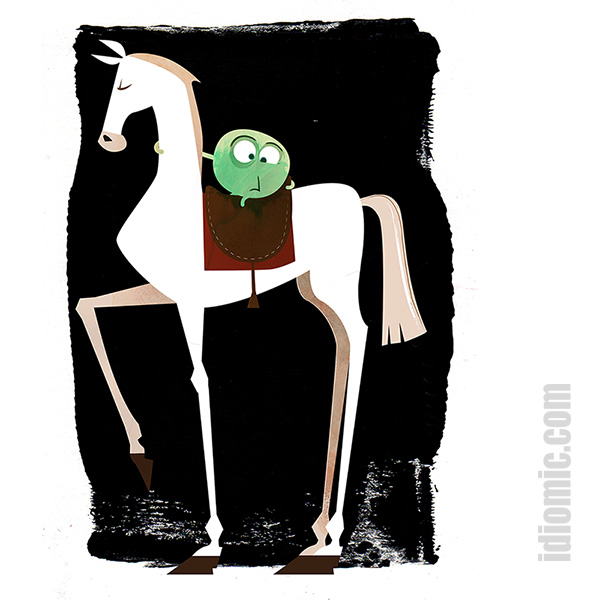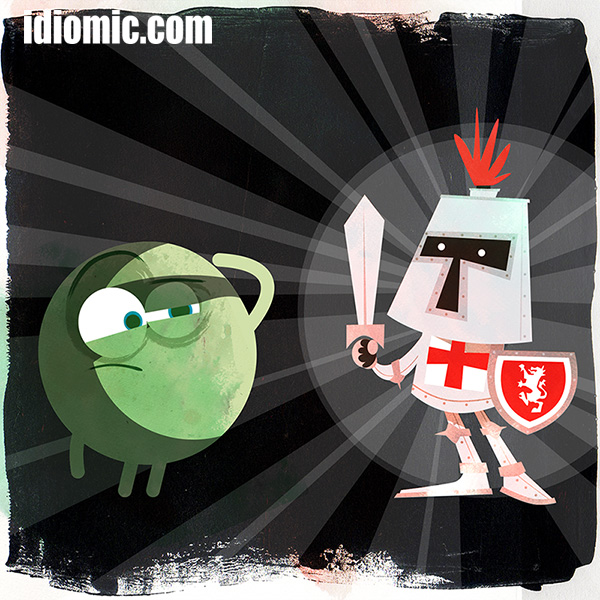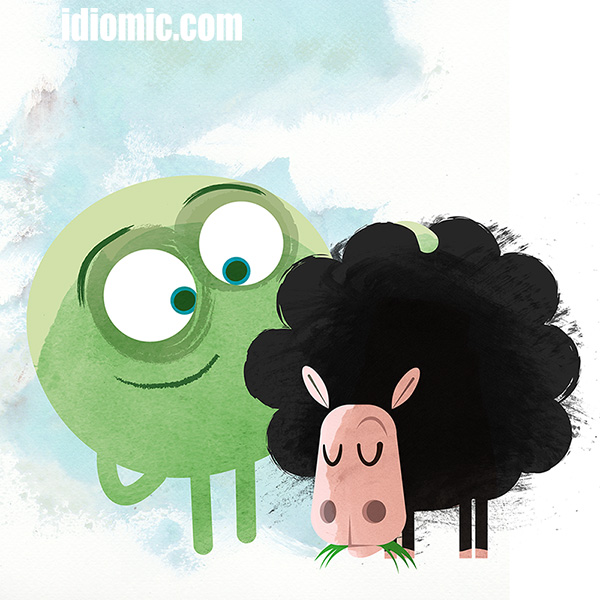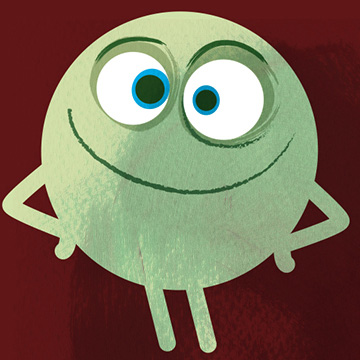
Definition : To be self-righteous, superior, or haughty.
Example: Brenda got on her high horse, and told the ladies how the cupcakes had to be presented for the bake sale, with her pink monstrosities taking centre stage.
Or alternatively
GET OFF YOUR HIGH HORSE
Definition : A command to stop acting superior.
Example: The rest of the ladies told Brenda to get off her high horse and threw her cupcakes away.
Origin:
In medieval times, a large horse was more commonly referred to as a ‘high horse‘. They were bred for this quality, and the larger or ‘higher’ the horse, the more expensive. Consequently, the size of your horse was an indicator of your rank. So, the wealthy and the aristocratic were literally on ‘high horses‘, looking down upon the common folk.
This has fallen out of fashion in our petrol age, though some folks have substituted four wheel drive vehicles instead. The ‘highest’ horse today would likely be the Hummer….





